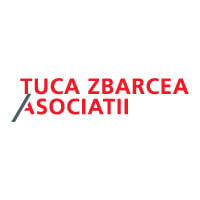

General cousnel | BayWa



Luiza Ionescu
General cousnel | BayWa
How do you approach managing legal aspects during periods of instability or crises, and how does your legal strategy align with the broader business strategy to ensure the organisation’s resilience?
In periods of instability or crises, my approach revolves around three key principles: proactivity, agility, and clear communication. Proactively, we anticipate potential risks by conducting thorough risk assessments and identifying key areas where the business might be exposed, whether from a legal, financial, or reputational standpoint. This allows us to establish contingency plans and legal frameworks that can be activated swiftly in case of a crisis.
During the crisis itself, agility is paramount. Legal teams must move quickly but carefully, providing real-time guidance that is pragmatic and aligned with the company’s broader strategy. I ensure that my legal strategy complements the business objectives by staying closely attuned to the company’s goals—whether it be safeguarding revenue streams, securing project continuous development, or preserving the organisation’s reputation. This involves working in close partnership with the leadership team, offering advice that balances immediate legal concerns with long-term implications.
Clear, consistent communication is essential, both within the legal department and across the organisation. Legal counsel should not just mitigate risks but also provide clarity and assurance to the business during tumultuous times. Our guidance must be actionable, easy to understand, and adaptable to the fast-moving nature of crises. By aligning legal initiatives with the overall business strategy, we enhance the organisation’s resilience, ensuring that it can recover and thrive even after disruptions.
What measures has your company taken to embed sustainability practices into its core business operations, and how does the role of the general counsel contribute to driving and ensuring sustainable practices within the company?
Sustainability is a foundational aspect of our company’s strategy, and we have taken significant steps to embed it across all operations. Our approach begins with setting clear sustainability goals, particularly in terms of reducing our environmental footprint and promoting responsible corporate governance. We have established key performance indicators (KPIs) related to environmental, social, and governance (ESG) metrics, which are tied directly to our performance and long-term objectives.
As Legal Manager, my role is integral to embedding sustainability into our operations. I work closely with various departments, including project management and operations, to ensure that all contracts and business dealings incorporate sustainability considerations. This might involve adding specific clauses that enforce responsible sourcing or ensuring that partners and suppliers meet certain environmental standards. Additionally, I provide legal oversight on investment and project decisions, making sure that any new initiatives are aligned with our sustainability goals.
From a governance perspective, I ensure that we are compliant with current ESG regulations while anticipating future legal developments in this area. This involves staying abreast of changing regulations and advising the leadership team on how to integrate sustainability not only as a compliance issue but as a business imperative. As a result, sustainability is not an afterthought; it is woven into the fabric of how we do business. Through this legal stewardship, I help drive practices that not only meet regulatory requirements but also contribute to our overall resilience and brand reputation.
What emerging technologies do you see as having the most significant impact on the legal profession in the near future, and how do you stay updated on these developments?
Emerging technologies like artificial intelligence (AI), automation, and data analytics are already transforming the legal profession, and their impact will continue to grow soon. AI-powered tools, for instance, are revolutionising tasks such as contract review, legal research, and compliance monitoring by making these processes faster and more efficient. Automation streamlines repetitive, time-consuming tasks, allowing legal professionals to focus on more strategic and high-value activities. Data analytics, on the other hand, provides new insights into risk management and litigation strategies, helping to predict outcomes and guide decision-making.
However, to truly succeed in the modern legal landscape, it’s no longer enough to rely solely on legal knowledge. The role of a general counsel or in-house lawyer increasingly demands a strong understanding of business operations, corporate finance, project management and other such domains. This business acumen allows legal professionals to align legal strategies with broader corporate goals, ensuring that legal advice not only mitigates risks but also supports the organisation’s growth and financial health.
Staying updated on technological and business developments requires a multi-faceted approach. I continuously engage with industry forums, conferences, and webinars that explore both legal tech and broader business trends. Additionally, I make it a priority to collaborate closely with other departments—particularly finance, M&A, and operations—so I remain well-versed in the company’s business objectives and the technologies they rely on. This interdisciplinary approach allows me to anticipate the legal implications of business decisions and ensure that legal strategies are fully integrated with corporate priorities.
In conclusion, emerging technologies are undeniably reshaping the legal field, but success requires a combination of legal expertise and strong business understanding. By staying ahead of these developments, I ensure that our legal department remains both efficient and strategically aligned with the company’s broader objectives.
How do you prioritise diversity and inclusion within your legal department, and what initiatives have you implemented to foster a more inclusive and equitable work environment?
Diversity and inclusion are not just values we aspire to but core principles that guide the way we operate within the legal department. I believe that a diverse and inclusive team is not only a moral imperative but also a key driver of creativity, innovation, and better decision-making. To prioritise diversity, we have adopted a multifaceted approach that ensures inclusivity at every level, from recruitment to leadership development.
First, we have implemented inclusive hiring practices to ensure that we attract candidates from a wide range of backgrounds. This includes removing bias from job descriptions, actively seeking candidates from underrepresented groups, and ensuring that our interview panels themselves reflect diversity. We also partner with diverse professional organisations to reach a broader talent pool.
Once on board, we ensure that every team member feels valued and empowered to contribute by creating an environment where different perspectives are welcomed and respected. To foster an inclusive culture, we conduct regular diversity and inclusion training, focusing on unconscious bias, cultural competence, and allyship. These sessions are not just a formality but an ongoing commitment to educate and equip our team with the tools to build an equitable work environment.
Additionally, we actively promote flexible working arrangements, recognising that creating a supportive environment for all employees—including those with different needs, backgrounds, and responsibilities – leads to a more engaged and productive team.
Through these initiatives, we continue to cultivate a legal department where diversity is celebrated, and inclusion is a daily practice, ensuring that all team members can thrive.